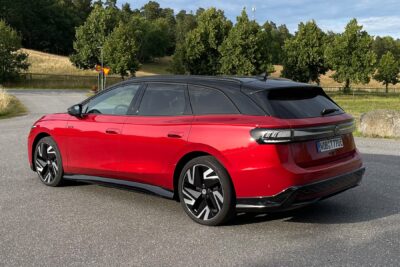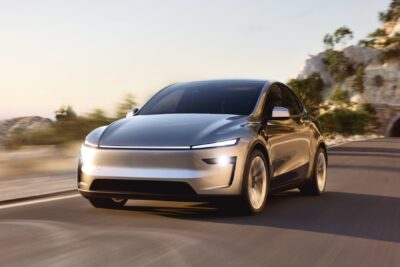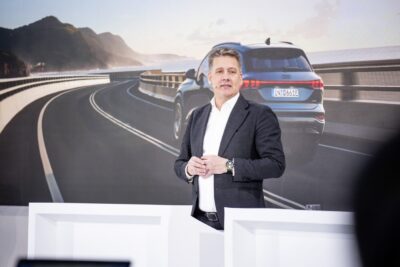Audi to present first Artemis model at the IAA
According to a media report, the concept for the first Audi model of the Artemis electric showcase project will be presented at the IAA this fall. There is also further information on the start of series production planned for the end of 2024 and possible offshoots in the VW Group.
++ Kindly find all updates to this article below. ++
As automobile journalist Georg Kacher writes in Automobilwoche, the electric luxury concept is to be shown at the IAA, which is being held in Munich for the first time and is scheduled for 07-21 September 2021. According to insiders, the vehicle will be a “sporty, elegant mix of Avant and four-door coupe” and will be reminiscent of the “Prologue” show car shown in 2014. There has already been speculation about the sales designation A9 e-tron since the summer.
The vehicle, which was developed by the Artemis taskforce outside the usual Audi organisation, as Artemis has been an independent company since December 2020 and is also expected to have offshoots at the Group brands Porsche and Bentley. Accordingly, the Porsche model with the project name K1 is to follow in 2025, and a large electric SUV “with an extra-large battery and a pampering guarantee” for Bentley has already been approved. This is apparently not yet the case for another derivative from Lamborghini, even though it seems possible.
According to the report, the Group’s Executive Board has already made another important decision: The three allegedly confirmed models are to be built at the commercial vehicle plant in Hanover. This is where Volkswagen plans to build the MEB-based production version of the ID in the future. Buzz and the three premium battery-electric vehicles will apparently be built in parallel on their own technology. Porsche once rejected the Hanover plant for the production of the Cayenne due to quality problems.
The connection between the commercial vehicle plant and Artemis is clear: Artemis Managing Director Alex Hitzinger was previously responsible for autonomous driving at VW Commercial Vehicles. Before that, in turn, the former motorsports engineer had worked at Apple.
The article also hints at some problems with the Artemis project. In order to develop the model to production launch, Artemis would need to be “fast, focused, efficient and, above all, innovative.” But because Artemis has to work with various departments within the group (such as Porsche in Zuffenhausen and Weissach, in Hanover, and also with Wolfsburg because of the software) despite its supposed independence, there are conflicts given the different goals and ways of working. One example cited is Porsche’s focus on sportiness, where “the first priority cannot always be absolute efficiency.” There is also talk of a “blocking attitude from Wolfsburg that keeps boiling up.”
A decision is now also said to have been made regarding the exclusive fast-charging network, which was already the subject of corresponding rumours in July 2020: At a meeting in Zuffenhausen, Audi, Porsche and Ionity are said to have agreed on a joint fast-charging network “that will promptly pamper discerning customers with additional services such as a charging guarantee and with convenience features such as wireless-conductive charging.” The article makes no mention of what such a “wireless-conductive” system should look like. In the context of electromobility, conductive charging usually means wired charging, or at least the transfer of energy via physically connected conductive materials.
The alleged involvement of Ionity is also interesting here; the joint venture is actually operated by Audi/Porsche, Mercedes, BMW, Ford and now Hyundai-Kia. Whether the implied deal with Audi and Porsche will also have an impact on the existing Ionity network is not clear from the article.
Update 09.01.2021: Audi CEO Markus Duesmann says that the first car of the new electric car task force Artemis will be neither a large sedan above the A8 nor a large SUV above Q7. Instead, the newly developed electric vehicles will stand in a category of their very own. According to the German Wirtschaftswoche, Duesmann is currently working on a concrete timetable for phasing out the internal combustion engine “in the next 10, maybe 15 years.”
With reporting by Sebastian Schaal, Germany.
automobilwoche.de (in German), wiwo.de (update in German)





0 Comments